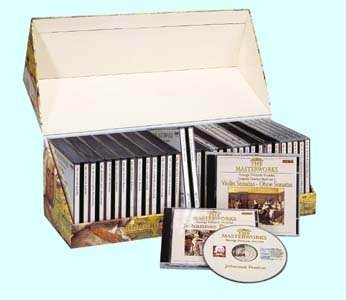‘Imeneo’ was Handel’s penultimate opera. Written
at about the same time as ‘Saul’ it could not be more different
to that muscular work. A slightly artificial pastoral, it needs
only small forces and much of it is in the lighter, more melodic
vein that Handel employed in many of his later operas (the London
Daily Post announced it as an operetta). It ran for a meagre two
performances. This was a period when internecine disputes between
the two London opera companies had not only weakened the opera
companies but had temporarily tired out the appetite of the rather
small operatic audience. Though it is not a grand opera, it is
by no means a weak work and when Handel presented in Dublin (in
concert form as a serenata) it went down a storm.
The plot itself is relatively slight. Rosmene
(soprano) is betrothed to Tirinto (mezzo-soprano) but she has
been rescued from pirates by the young general Imeneo (baritone).
She is loved by Imeneo but reluctant to return his affections,
torn between love and duty. Clomiri, her sister (soprano) also
secretly loves Tirinto. Rosmene’s father urges her to renounce
Tirinto and espouse Imeneo out of gratitude. Her struggle lasts
three acts and she finally has to resort to feigning madness before
deciding.
It is here that the interesting nature of the
plot is revealed. Tirinto is a castrato role and his arias in
the first half of the opera lead us to believe that he will ultimately
receive Rosmene’s hand. He is after all the hero (castratos always
are) and that’s what happens in opera seria. But …
The title role was sung by one William Savage,
who five years earlier had been ‘the boy’ who, as a treble, sang
the role of Oberto in ‘Alcina’. Perhaps Handel was tempted to
defy convention by Savage’s attractive, young stage persona (after
all he could have been in his early twenties at most). Or perhaps
he just enjoyed confounding the audience’s expectations. After
all, when he wanted to he could create wonderful dramatic moments
by confounding expectations of what should happen in the formal
structure of opera seria. Whatever the reasons, it is Imeneo who
gets the girl. So the opera has that very rare thing in baroque
opera, a baritone hero. But the final chorus glorifies duty and
reason, difficult concepts for modern audiences to accept, accustomed
as they are to the romantic view of relationships.
For the performances in Dublin Handel made alterations
and adjustments (including transposing parts of the title role
for a lower voice). Unfortunately, the edition used for this recording
is a little cavalier. Arias are omitted or cut, but worse the
title role is given arias which should by rights be sung by other
characters. Admittedly, each generation’s Handel performances
can seem a little out of date to the next generation. But the
cavalier attitude to the text must have seemed a little old fashioned
even in 1986. Another area where the recording seems old fashioned
is in the use of quite a substantial choir to sing the chorus
numbers rather than just an ensemble of the soloists.
But if you simply leave your musicological hat
to one side, then this recording is very enjoyable.
In the title role, John Ostendorf sings mellifluously,
but Handel has left us something of a puzzle about the tessitura
of this role. Some commentators have suggested that the role should
be sung by a baritone/tenor but this is a type of voice which
barely exists in Handel’s time. The role only really makes sense
if you consider the youth of the singer; Savage was presumably
barely in his twenties when he sang this role and could easily
have had a light and flexible baritone. Unfortunately, John Ostendorf
has a bass voice, admittedly a flexible one. He does not quite
sound as old as his putative father-in-law, but it is a close-run
thing. It is a pity that the work did not have a longer performance
history under Handel as it would have been interesting to see
how he handled the problem of the title role in the longer term.
D’Anna Fortunato has a lovely firm, warm tone
as Tirinto but her passagework has a tendency to be untidy. This
is not a major problem and is more than compensated for by her
stylish singing in a role which seems to suit her voice very well.
Julianne Baird has a lovely, affecting voice
as Rosmene. She is a joy to listen to, a beautifully stylish singer.
Rosmene and both suitors come together in a lovely trio, ‘Consolami,
bio bene’ at the close of Act 2. At the end of Act 3 Rosmene finally
reaches a decision by feigning madness. This allows Handel to
revisit the device that he used in ‘Orlando’. Whilst the scene
can be seen as Handel parodying the standard operatic device,
the wild modulations and snatches of haunting melody reflect the
real turbulence in Rosmene’s heart.
Beverly Hoch has a bright, focused voice as Clomiri.
Her tone can get a little hard in the higher lying passages and
this is emphasised by her unfortunate tendency to include over
elaborate ornamentation with some spectacularly unsuitable high
notes. As her father Argenio, Jan Opalach has a fine dark focused
voice and a good technique.
What ‘Imeneo’ needs is a good modern recording
using a decent edition based on the first performances with a
more suitable singer in the title role. Until this happens (and
after all we have a new recording of ‘Deidamia’ to look forward
do) we can simply enjoy this recording.
Robert Hugill
